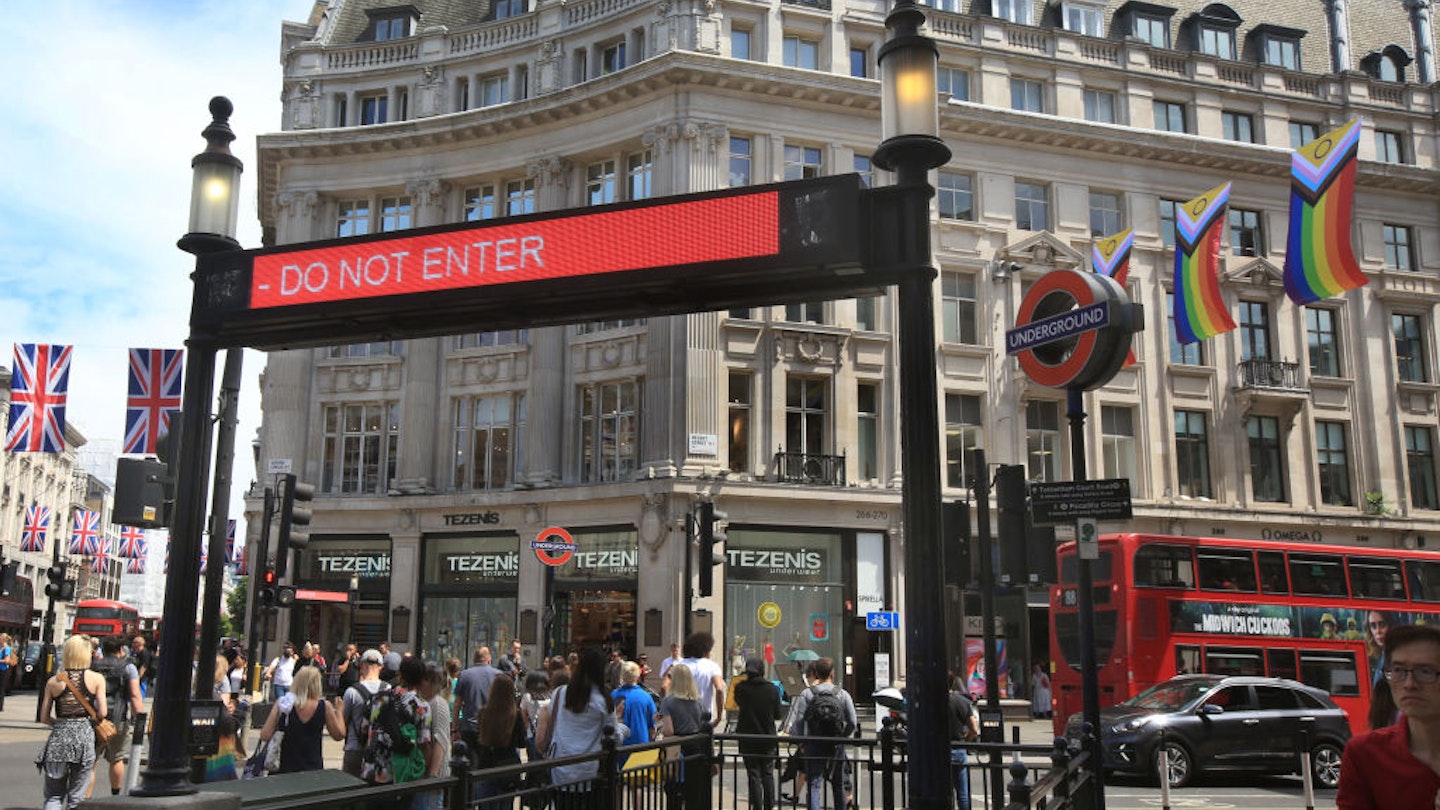Britain’s Largest Rail Strike in 30 Years: What Travelers Need to Know
Britain’s biggest rail strike in 30 years began on Tuesday, engaging an estimated 40,000 rail staff in the protest. This industrial action, prompted by a prolonged dispute over salary, job security, and redundancies, is scheduled for another two days this week. Consequently, London’s transport authority has issued warnings against travel in the capital on strike days.
Transport for London (TfL) has indicated that many stations will close during the strike action, foreseeing “severe disruption” across the entire public transport system in London.
Strike Dates
The first day of strikes occurred on Tuesday, with two more slated for Thursday, June 23, and Saturday, June 25.

Impacted Lines
While not all rail operators are participating in the strike, all public transport in Britain will be affected, including additional passengers on buses and trams. It is anticipated that half of the railways nationwide will be out of operation on Thursday and Saturday.
In London, the strike affects the new Elizabeth line, London Overground services, and certain Tube lines, with disruptions continuing until mid-morning on the days following the strikes.
Despite Wednesday being a non-strike day, the BBC reports that only 60% of trains are operational in the country. TfL’s updates indicate significant delays on various Tube lines, including Piccadilly, Metropolitan, Circle, Hammersmith and City, and District lines, with reduced services on the London Overground.
Travel Tips for London
For those needing to navigate London during this period, Overground services will provide reduced operations between 7:30 am and 6 pm on strike days. Travelers should allow extra time for their journeys, expecting ongoing disruptions through at least mid-morning on Friday and Sunday.
If travel is necessary, preparing for severe delays throughout the week is crucial. TfL recommends walking or cycling whenever feasible to avoid the congestion in public transport.

Effect on London Airports
UK airports are facing challenges due to increased demand and staff shortages, which have reached a critical point. The ongoing strike will further exacerbate the situation.
Travelers are urged to seek alternative transportation to the airports when possible. National Express buses serve some airports; however, they are already overwhelmed with passengers attending events like the Glastonbury Festival.
Heathrow Airport
The Heathrow Express, which provides direct service between London Paddington and Heathrow Airport, is expected to operate at reduced frequency on strike days, running every 30 minutes rather than four times an hour. The last departure for Heathrow is scheduled at 6:10 pm from London.
Officials from Heathrow Express have advised travelers to allow extra time due to the planned disruptions and have stated that passengers with tickets for strike days can claim a full refund or amend their ticket as needed.
Gatwick Airport
Unfortunately, the Gatwick Express train will not run on strike days.
Stansted Airport
The Stansted Express will be operating on a reduced schedule during the strikes. The first train from the airport to London departs at 7:42 am on Thursday, with only one train per hour. Services on Sunday will see the first and last trains at 7:42 am and 5:12 pm respectively, with two trains running every hour.
Passengers are encouraged to explore alternative transit options on strike days, with Stansted Express offering refunds for those who wish not to travel due to cancellations or delays.
London City Airport
The DLR line will maintain operations to London City Airport, although some station closures are expected on strike days.
Reasons Behind the Strike
Two distinct strikes are happening simultaneously: a nationwide strike organized by Network Rail and another from TfL staff. This is the first coalition of strikes since 1989.
Members of the Rail, Maritime and Transport (RMT) union have voted for industrial action following unproductive negotiations with Network Rail officials regarding prolonged pay freezes and potential job cuts, which the RMT estimates might affect around 2,500 jobs.
In London, the RMT states the Tube strike pertains to “a separate dispute over pensions and job losses.”
RMT General Secretary Mike Lynch emphasized, “In the face of a cost-of-living crisis, it is unacceptable for railway workers to lose jobs or experience another year without pay increases.”
In a statement, he further mentioned, “RMT members are paving the way for all workers who are fed up with the erosion of their pay and conditions, driven by corporate greed and government policy.”
Additionally, strike actions are anticipated to hinder travel throughout Europe this summer, with airline staff in Italy, Spain, France, and Portugal planning to strike in July. In Belgium, a cost of living strike is taking place this week.





